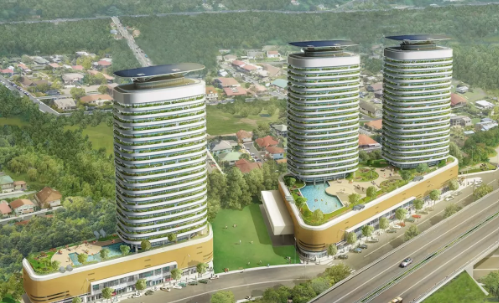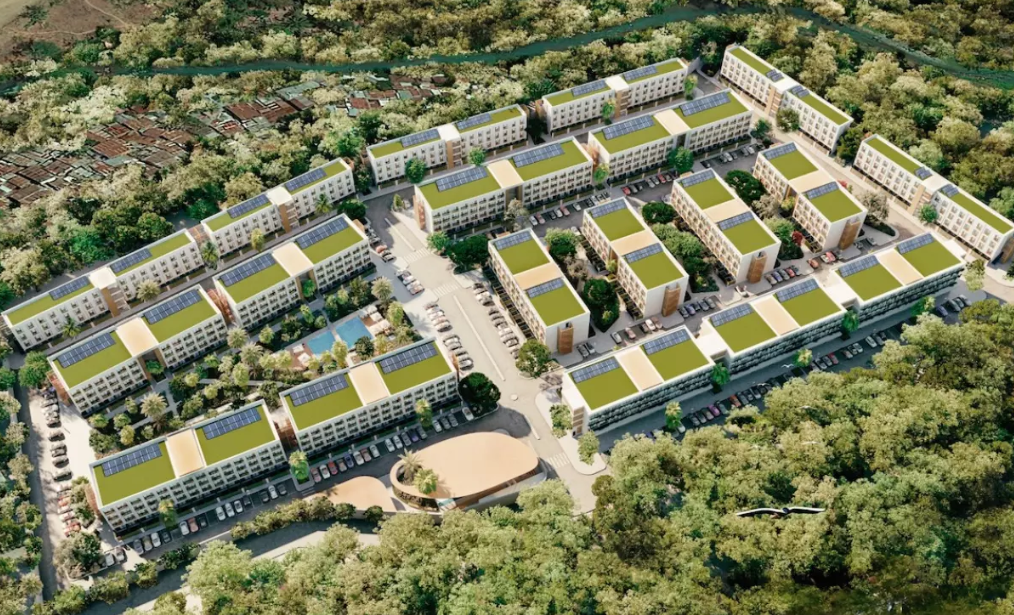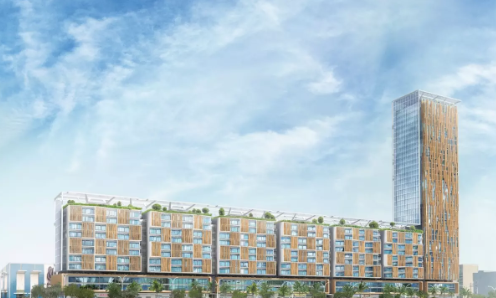A New Way of Living in the World
Global interest in the Philippine real estate sector, aided by developments in logistics and transportation, is redefining living standards in the country.
Projected to be among the top 18 economies in the world in the next 25 years, interest in investing in real estate in the country has been growing exponentially over the last decade. Many among those interested are Filipinos working and living abroad, sometimes for more than a generation, either looking to return or just having a share in the country’s future by securing the safest investment of all: real estate.
And that’s where Ayala Land comes in, guiding them through the process, remotely or in person, of choosing the perfect place. “We started in 2005 with a small operation aimed at the U.S. and Asia,” says company president Bing Gumboc, “but we have grown by leaps and bounds.” Indeed, with 450 in-house tactical teams, over 1000 marketing partners globally, offices in the U.S., Singapore, Hong Kong, Milan, and Dubai, and representing four major residential business groups, the company is not only doing well, but it is setting the standard for international real estate marketing around the world. Accordingly, the company’s numbers after the pandemic are almost hard to believe, having grown by 45% in their overall operations and by a whopping 157% in the United Arab Emirates.

These numbers mean that not only Filipinos wanting to move back to the country are becoming interested in investing, but also third and fourth generation Filipinos with no plans to go back, attracted by the opportunity of investing in their own country while it is still very affordable. “This is extremely encouraging for us,” says Gumboc, “because that is our purpose, to help Filipinos secure the products of their hard work, build their dreams solidly and lastingly, while helping the Philippines grow.”
Yet new ideas of living are also changing the industry from within, with intelligent green solutions setting the standards on the Filipino homes of the future. A leader in this transformation is Italpinas, which stepped into the market in 2009 with a winning idea: green buildings that offer real energy-saving solutions for sustainable living without raising costs. “We focus mainly on passive green design strategies incorporated in the design itself,” explains CEO Romolo Nati. Indeed, by increasing natural ventilation, recycling water, producing power through solar panels, and shading the facades of buildings, the design is responsible for lowering the use of air conditioning by a third, which in the Philippines can make up to 60% of energy use in a household.



With a growing foothold in a market eager for sustainable solutions, commitment, and hard work at Italpinas has certainly paid off, and is now a household name in real estate in the country. “I fell in love with the Filipino environment, the people, and the weather, and this country so full of opportunities,” adds Nati with a smile. “If you have the vision and the discipline, you can make it here.”

Making the transformation possible is intelligent transportation leader Fast Logistics, which offers a complete range of solutions for local and multinational companies transporting goods in and out of the 7,641 islands that make the Philippines, providing warehousing management, distribution, and logistics solutions. Mostly dealing with fast-moving consumer goods, its extensive network covers inland, air, and sea forwarding and courier services. “We began branching out as our customers grew and began to need more services, and so we went into warehousing, distribution, etc, always doing our best to stay with our clients through every step of the process,” says company CEO William B. Chiongbian II.
By focusing on technological solutions for developing targeted services, the company has successfully allied with the Honeywell system for automated warehousing, allowing it to work more efficiently with larger, more complex clients, and in this way to grow past many of its competitors. Optimistic about the country’s agro-industrial future with the policies of the new government, the company has high hopes of growth in the coming years. “We have the lowest median age in the region, and we crossed the per capita income mark of 3,000 not only in large cities but in smaller ones as well,” Chiongbian adds, “and this should make anyone operating in the Philippines or interested in moving operations to this country extremely, extremely optimistic”.




